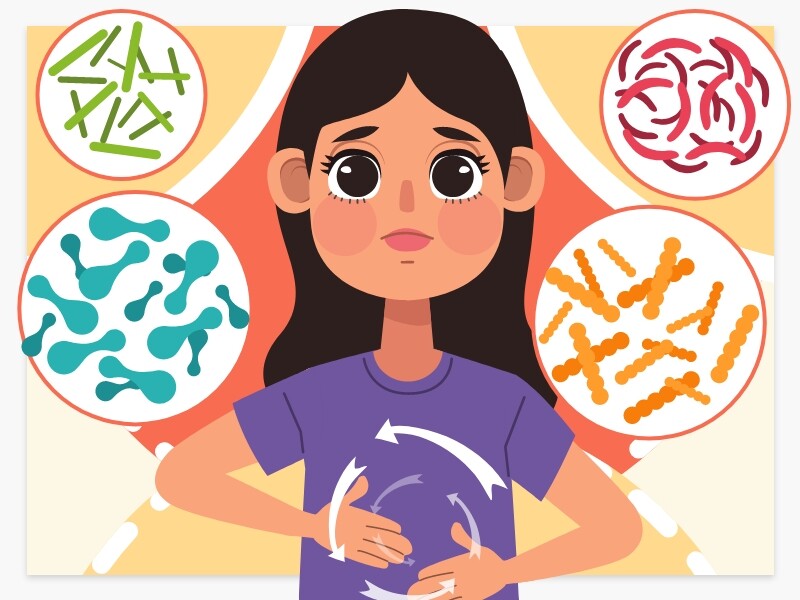Effects of Probiotics on Metabolism

What is Metabolism?
Metabolism is a chemical process that takes place when your body converts foods and drinks into energy. It is a complex process that combines oxygen and calories to create and release energy that fuels body functions.
What Does Metabolism Do?

Metabolism provides energy for biological functions of the body, such as:
- Digesting food.
- Growing and repairing cells.
- Breathing.
- Circulating blood.
- Managing hormone levels.
- Regulating body temperature.
The Difference Between Fast Metabolism and Slow Metabolism
A fast metabolic rate burns a lot of calories even while at rest. If you have a slow metabolism or slow BMR, your body needs fewer calories to keep it going. A slow metabolism burns fewer calories, which means more gets stored as fat in the body. That is why some people have difficulty losing weight by just cutting calories. A fast metabolism burns calories at a quicker rate, which explains why some people can eat a lot and not gain extra pounds.
How Does Probiotics Affect Metabolism?
The type of bacteria found in your gut can influence how many calories you get from food as well as how well your body breaks down and uses those calories. The gut microbes help break down complex carbohydrates and extract energy from them. Research suggests that the type of microorganisms present influences how many calories you absorb during this process.
The gut microbiome is the community of microbes that live in the gastrointestinal tract. These play an essential role in our health, helping with digestion, immunity, vitamin synthesis, hormone production, and metabolic health. Your gut health depends on the diversity of beneficial bacteria, all with differing roles. Gut microbiome imbalance increases the risk of metabolic disease. When the amount of good bacteria is out of balance, it increases your risks of inflammatory diseases like obesity and type two diabetes.
Is There a Side Effect of Taking Probiotics?

Probiotics are generally safe for everyday use as part of maintaining a healthy gut and strong immune system. It is at its best if taken every day rather than as a quick fix. However, some people with serious illnesses or compromised immune systems may experience more severe complications. Here are some side effects of probiotics:
- They may cause digestive issues. While most people do not experience side effects, the most commonly reported reaction to bacteria-based probiotic supplements is a temporary increase in gas and bloating. Those taking yeast-based probiotics may experience constipation and increased thirst.
- Headaches. Some probiotic-rich foods, like yogurt, sauerkraut, and kimchi, contain biogenic amines. Amines can excite the central nervous system, increase or decrease blood flow and may trigger headaches in people sensitive to the substance.
- Increase histamine levels. Some bacterial strains used in probiotic supplements can produce histamine inside the digestive tract of humans. When histamine levels rise, blood vessels dilate to bring more blood to the affected area. This process creates redness and swelling in the affected area and can also trigger allergy symptoms.
- Some ingredients can trigger adverse reactions. People with allergies should read the labels of probiotic supplements carefully since they might contain ingredients they could react to. For example, some of the supplements contain allergens such as dairy, egg, or soy.
- Some product increases infection for some. They are safe for the vast majority of the population but may not be the best fit for everyone. In rare cases, the bacteria or yeasts found in probiotics can enter the bloodstream and cause infections in susceptible individuals. Those at greatest risk for infection from probiotics include people with suppressed immune systems.
How to Boost Your Metabolic Rate?
- Eat regularly and avoid skipping breakfast.
- Eat enough calories and avoid eating too little because it can slow down your metabolic rate.
- Eat more protein to boost proper metabolism and aids in burning excess calories.
- Exercise regularly but avoid rigorous activities that may overwork your muscle.
- Manage your stress level and maintain a proper sleep schedule.
- Drink at least 2 liters of water every day.
